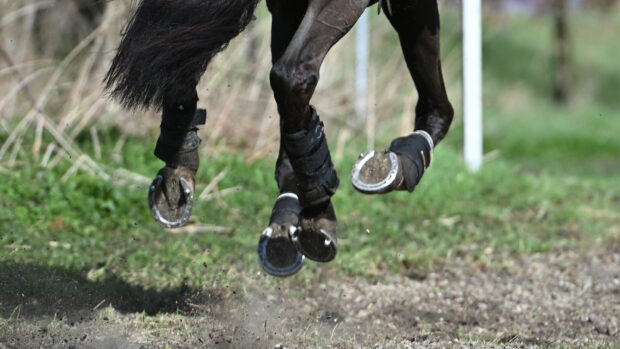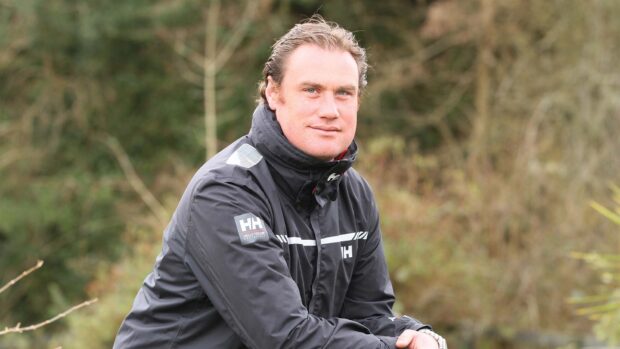Rising bills and winter fast approaching spell concern for many in the UK – and the horse world is no exception.
Blue Cross is among the charities to flag worries, reporting that an increased number of people may be struggling financially to keep their horses.
Its latest figures, released in mid-August, showed the charity had received 144 requests from people asking Blue Cross to take in or help rehome a horse or pony. More than 70% of those cited personal or financial circumstances. This compares to around 15% of the total 277 intake and rehoming requests, and approximately 14% of the 231 requests in 2020, specifying financial reasons.
“Some people we are speaking to are eating food from a food bank. Obviously horses are generally part of a family but if you can’t afford to buy food, horses have got to go,” Annabelle Taylor, horse rehoming coordinator at Blue Cross, told H&H.
“People are ringing me saying, ‘I can’t afford next month’s livery bill.’ We only intake horses once a month and I’ve had people ring me and say, ‘This is the last date I can keep them till.’ So we are finding not just that people are really struggling, but that they are really struggling right now.
“Some have it more planned, but some are saying, ‘I cannot keep them more than three weeks,’ so we are finding emergency intake spaces for them at one of our centres or one of our foster yards to try to support them in the best way we can. These are their beloved horses. It’s really sad and people are finding it really difficult, but if you can’t afford to feed your kids, unfortunately horses just aren’t going to be kept in the same way.”
She added that the reasons they are hearing are mixed, rather than one single factor. For example, the effect of people tightening their belts having an impact on businesses, land being sold, redundancy, rising food prices and fear of the uncertainty of what is to come this winter.
Ms Taylor said the current intake rate is manageable, but explained that a continued demand for rehoming is vital to maintain that balance.
“There will always be people who need a companion horse, but we have seen a reduction in people just wanting a horse for the sake of it,” she said.
She added that financial donations are “always appreciated” and if people have space and means to rehome a pony, that makes a real difference to the charity, and frees up spots for other equines in need.
World Horse Welfare chief executive Roly Owers told H&H that looking ahead to the next few months, it is “difficult not to be hugely concerned about the rising cost of living”.
“With long nights, a lack of grazing and often a need to buy supplementary feed, winter is always a more challenging season for many horse owners,” he said.
“Through our four centres across Britain, our primary focus is on taking in welfare cases, although we are certainly having more queries to our advice line from owners who are struggling. Our fear is always these animals becoming welfare concerns, because owners are no longer able to adequately care for them.
“We are working closely with others to try to prepare as best we can for the coming winter, but as we know from prior experience, economic downturns can take several years to manifest an increase in welfare cases, so the risk is with us for some time to come.”
Fi Boughton, British Grooms Association (BGA) and Equestrian Employers Association (EEA) membership manager, spoke about the picture the organisation is seeing at present from both the employers’ and grooms’ perspective.
“It is very definitely starting to bite, as far as we are concerned,” Ms Boughton told H&H.
“Quite a lot of grooms are leaving the industry because they say they just can’t afford to – certainly freelancers – run their car, pay their insurance and all the rest of it. They are finding they can’t afford to be running their life as a groom any longer.
“We have had some phone and say, ‘I would like to cancel my insurance as I would rather put my heating on this winter.’ Unfortunately, that is short-sighted – we want them to keep their insurance because if they have an accident, they have no money coming in. That’s quite hard. We are trying to convince them to keep their insurance, not because it makes any difference to us, but because it’s really important for them.”
She added that they have had some, although “not a huge number” of, enquiries from employers concerning financial decisions that affect staffing.
“Nobody wants to be laying off staff and equally nobody wants to be leaving the industry – we get grooms leaving the industry all the time obviously, but before they’ve been citing [other reasons]. Now it’s, ‘I can’t afford to be a groom,’” she said.
The picture is far from entirely gloomy and the equestrian world has weathered financial challenges before.
The BGA and EEA are on the end of the phone for members wanting advice and support, plus there is much advice on the respective websites. For anyone in the industry feeling worried, there are the Grooms Minds and Riders Minds support services.
“We’ve had a huge pick-up in memberships, it will be a big month for us,” Ms Boughton added. “And I would say 95% of those are people taking out insurance. We’ve had a big pick-up in employers joining as well. So obviously people are realising that the help is there and therefore coming to us. The more members that can come to us and we can help and provide for, the better that is.”
Racing Welfare had a nearly 43% increase in financial assistance awarded to individuals working in, or retired from, the racing industry to the mid-year point compared to the same time period in 2021.
It awarded 260 winter fuel grants between January and May, totalling £78,000, and more than £7,200 in return to school grants, thanks in large part to the John Pearce Foundation.
Racing Welfare’s deputy head of welfare Becky Ireland told H&H the charity is hoping to open its winter fuel grant again in November, dependent on funding.
She said the wider economic backdrop and making the grants more specific and easier for people to understand and apply for are likely behind that 43% increase.
“The backdrop to this is not only a big increase in fuel prices, but an increase in everything else as well,” she said.
“I think this has been building up over time. We had two years of everything that went with Covid, a lot of reduced incomes there, a lot of businesses that didn’t re-open, people who got in arrears with rent and things – and now would have been the time they were trying to catch up, now everything is back to ‘normal’.
“But the reality is that when we got back to normal, it wasn’t normal because those prices started increasing. So I don’t think we can pin it down to just one thing, like fuel. It’s a much wider issue than that.”
She added that the reason Racing Welfare opted to target grants for specific things, such as fuel or return to school costs, is because they find that by setting specific criteria, more people are finding they are eligible.
“Maybe it takes away that fear of, ‘I might be applying for something I’m not eligible for,’” she said.
“The winter fuel grant in particular – as you would expect, we saw a lot of people come through who were already beneficiaries of Racing Welfare, which is not a great surprise. But we also saw a significant number of people who had never approached us before. Those were largely from areas of the industry that we do and have for some time supported, but who sometimes think we don’t.
“The rule of thumb is 75% of your income is derived from racing, so as you can imagine, that rules a lot of people in who might not say they ‘work in the racing industry’.”
That means people who work in sectors connected to the racing industry may find they are eligible, such as staff at veterinary practices or feed merchants.
As well as the support Racing Welfare can offer, including its 24-hour support line and information online, Ms Ireland pointed in particular to charity Turn To Us, which has a simple online calculator so people can make sure they are getting all the Government support they are entitled to.
“While the energy price cap is positive in some ways, the backdrop to that is that it is still double what people would be expecting to pay last winter,” she said, adding that they are seeing a “compounded issue” that sits in the wider context of what employers and wider society are also experiencing.
“It’s against that backdrop of higher petrol and food prices, people’s rents are going up and most people’s wages aren’t keeping up.”
British Equestrian Trade Association executive director Claire Williams told H&H the retail picture is “challenging and varied”.
“There are so many factors that are interlinked,” she said. She highlighted examples such as the impact energy costs across supply chains, shipping costs, needed staff pay increases, how media reports can influence consumer behaviour, inflation and the war in Ukraine.
“It is a very challenging time, but the equestrian industry long term does tend to be quite resilient,” she said, adding that “at the end of it all, we all care for our horses”.
You might also be interested in:

Cost of living: what support is available for riders, businesses and the equine industry?

Compete or train? How the cost of living is having an impact on the horse world

Cost of living concerns as welfare charity reports ‘steep’ rise in calls from worried owners

‘It’s a false economy’: owners urged not to scrimp on horse care as cost of living crisis continues

Subscribe to Horse & Hound magazine today – and enjoy unlimited website access all year round
Horse & Hound magazine, out every Thursday, is packed with all the latest news and reports, as well as interviews, specials, nostalgia, vet and training advice. Find how you can enjoy the magazine delivered to your door every week, plus options to upgrade your subscription to access our online service that brings you breaking news and reports as well as other benefits.




